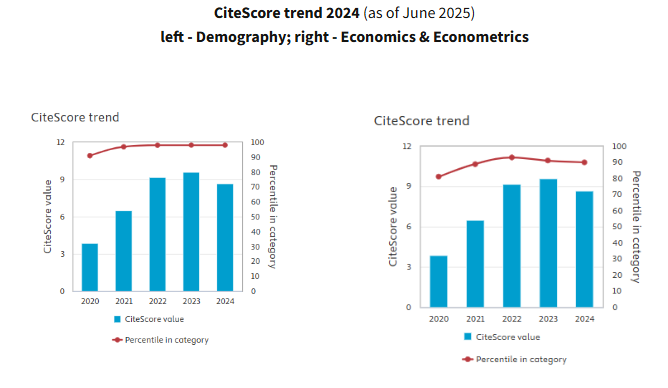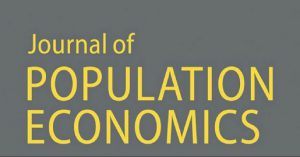GLO NEWS
 A Sin Tax can effectively improve population health! A review of “The Economics of a Sin Tax on Sugar-Sweetened Beverages”.February 6, 2026 5:00 pm
A Sin Tax can effectively improve population health! A review of “The Economics of a Sin Tax on Sugar-Sweetened Beverages”.February 6, 2026 5:00 pm First announcement: GLO Bonn 2026 Conference – November 30 to December 2 (in person with online access) & December 3-4 (online only)February 3, 2026 4:00 pm
First announcement: GLO Bonn 2026 Conference – November 30 to December 2 (in person with online access) & December 3-4 (online only)February 3, 2026 4:00 pm- February 3, 2026 2:00 pm
- February 3, 2026 3:07 am
- January 29, 2026 2:06 am
GLO Highlights
 RECRUITERS: Global GLO-JOPE Conference 2025, December 3-5 Bonn, Hosts Job Market Sessions for ASIA, EUROPE & NORTH AMERICANovember 30, 2025 4:00 pm
RECRUITERS: Global GLO-JOPE Conference 2025, December 3-5 Bonn, Hosts Job Market Sessions for ASIA, EUROPE & NORTH AMERICANovember 30, 2025 4:00 pm Global GLO-JOPE Conference 2025 With Book Launch of ‘Death at Booroomba’ by Alison Booth: More information & how to join online.November 30, 2025 9:00 am
Global GLO-JOPE Conference 2025 With Book Launch of ‘Death at Booroomba’ by Alison Booth: More information & how to join online.November 30, 2025 9:00 am- October 9, 2025 5:00 pm
 Call for Papers: 8th Renmin University of China – GLO Annual Conference on “Micro Population Economics and Human Relations”, 1-2 November 2025, Beijing, China.August 26, 2025 4:00 pm
Call for Papers: 8th Renmin University of China – GLO Annual Conference on “Micro Population Economics and Human Relations”, 1-2 November 2025, Beijing, China.August 26, 2025 4:00 pm 8th IESR-GLO joint workshop on “Fertility decline and family policies” at Jinan University, Guangzhou, China, organized with support of the Journal of Population Economics.July 11, 2025 10:00 am
8th IESR-GLO joint workshop on “Fertility decline and family policies” at Jinan University, Guangzhou, China, organized with support of the Journal of Population Economics.July 11, 2025 10:00 am
GLO Background
The Global Labor Organization (GLO) is an international, independent, non-partisan and non-governmental organization that has no institutional position. It deals with the challenges and benefits of globalization and international collaborations since March 2017. The GLO functions as an global network and virtual platform for researchers, policy makers, practitioners and the general public interested in scientific research and its policy and societal implications on global labor markets, demographic challenges and human resources. These topics are defined broadly to embrace the global diversity of markets, institutions, and policy challenges, covering advanced economies as well as transition and less developed countries. Read more about the Motivation, Goals and Spirit in our Mission.
- The GLO is a leading and global research and policy network on labor, demographics and human resources.
- The GLO is supported by individuals as well as organizations with a thematic interest and a strong ambition to contribute to an effective global network and to benefit from it.
- The GLO Network currently consists of about 2,200 individuals and 35 organizations covering over 131 countries.
Interested in joining the GLO network?
More information how to join the GLO: LINK
Follow the GLO on LinkedIn, Twitter and Facebook !
GLO – supporting the Journal of Population Economics (JoPE) — all articles
SSCI IMPACT FACTOR (IF): 3.0 (2024); 3.3 (2023); 6.1 (2022) – 7/50, Q1, in Demography & 125/617, Q1, in Economics in 2024.
IF is calculated as citations in 2024 to Web of Science indexed items published in 2022 & 2023 divided by the number of citable items in 2022 & 2023.
SSCI 5-Year Impact Factor: 4.3 (2024); 4.1 (2023); 5.0 (2022)
SSCI Journal Citation Indicator (JCI): 1.44 (2024); 1.79 (2023); 2.13 (2022). JoPE has 44% more citation impact than the average in its category in 2024.
Rank by JCI. Demography: 6/50 (2024) Q1; 2/49 (2023); 1/49 (2022). Economics: 73/617 (2024) Q1; 45/600 (2023); 24/581 (2022)
CiteScore (Scopus): 8.7 (2024) from 9.6 (2023); 2/140, Q1 in Demography & 72/732, Q1 in Economics and Econometrics in 2024. CiteScore 2024 counts the citations received in 2021-2024 to articles, reviews, conference papers, book chapters and data papers published in 2021-2024, and divides this by the number of publications published in 2021-2024.
SJR (Scimago Journal Rank): 1.805 (2024) from 2.7 (2023)
RePEc Simple Inpact Factor: 19.807 (June 2024), Rank 92 of 4,104 journals





